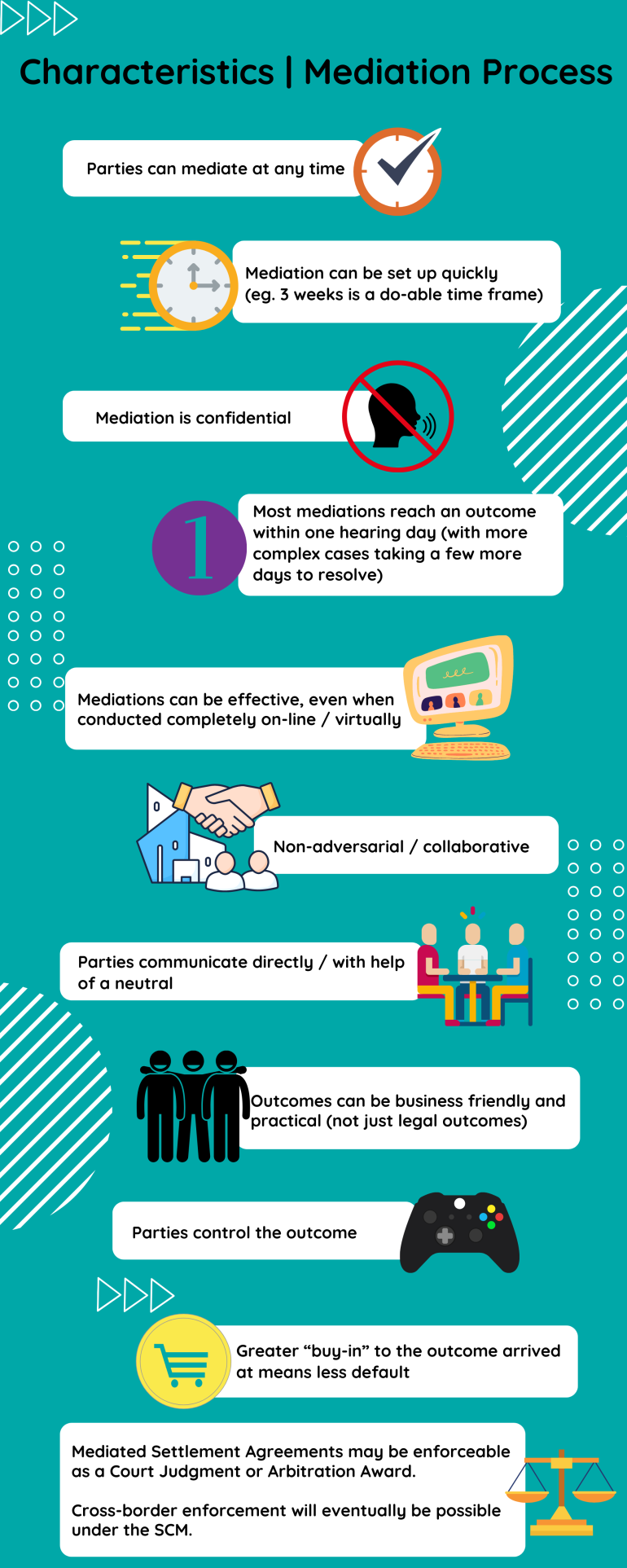Andrii Yalanskyi / Shutterstock.com
Major changes are taking place in the way disputes are managed. All this is taking place against the background of business disruption and the need for businesses to be nimble to seize business opportunities quickly. As most GCs are aware, budgets for legal expenditure are tightly controlled and cost control is a key performance indicator (KPI) for all GCs. This is especially the case regarding legal spend for prosecuting or defending disputes that often hit companies.
... Budgets for legal expenditure are tightly controlled and cost control is a key performance indicator (KPI) for all GCs.
With this in mind, GCs should be aware of the following trends to help manage and mitigate disputes risks for their organizations in a timely and effective manner.
This update will equip you with needed information to ask the right questions and successfully drive the strategy that will help your organization resolve disputes in a timely and cost-effective way.
Key Things to Know
- Changes to the Rules of Court;
- Rising prominence of mediation; and
- The start of a dispute – some practical pointers.
Changes to the Rules of Court
New Rules of Court 2021 are in effect (since April 2022) and have fundamentally changed the way litigation is conducted in Singapore.
First, greater discretion has been granted to the court allowing it to influence the way in which a litigation case is conducted. Second, greater emphasis has been placed on parties getting their case ready from the outset. Dispute lawyers call this “front loading” of case preparation. Third, there is now a duty imposed on parties to consider “amicable resolution of the party’s dispute.”
Amicable resolution duty falls on the party even before they commence the action in court. This duty persists throughout the course of the action and even upon appeal. A party needs to make an offer of amicable resolution unless the party has reasonable grounds not to do so. An offer of amicable resolution must not be rejected by a party receiving it unless that party has reasonable grounds to do so.
A party needs to make an offer of amicable resolution unless the party has reasonable grounds not to do so. An offer of amicable resolution must not be rejected by a party receiving it unless that party has reasonable grounds to do so.
So, what is an offer of amicable resolution? It means making an offer to settle the action or appeal or making an offer to resolve the dispute other than by litigation, whether in whole or in part.
The new Rules of the Court resulted in serious implications for disputing parties:
- Litigation is not the default mode of dispute resolution;
- Litigation is now seen as the course of last resort; and
- There are ways to resolve the dispute other than by litigation.
Rising prominence of mediation
While litigation in Singapore has experienced this recent seismic shift, arbitration has enjoyed rising popularity. Most parties may think arbitration is inevitable because it is stated in a clause in their contract. In reality, many parties are finding that arbitration has high costs (comprising institutional fees, arbitrator fees, and counsel fees), as well as complex procedures, and is time consuming (comprising hearings and time to issue the award).
Amid all this, GCs are starting to see mediation as an effective alternative dispute resolution (ADR) mechanism. This is mainly due to two main factors:
- As a means of dispute resolution, mediation has proved that it works in the majority of cases which have been referred to mediators; and
- The signing of the Singapore Convention on Mediation (SCM).
Mediation as defined in the SCM is “a process where parties reach an amicable settlement with the aid of a neutral with no authority to impose a solution on them.” A full discussion on mediation is beyond the scope of this article. Most importantly: Mediation saves time, costs and, possibly, commercial relations.

Mediation saves time, costs and,
possibly, commercial relations.
The start of a dispute – some practical pointers
When a dispute unfolds, a GC has to manage it in the best interest of the organization. This includes managing internal stakeholders who may have different interests in the disputes. The GC will usually need to instruct external lawyers and often has to communicate between internal stakeholders and external lawyers to ensure that interests and issues are well understood especially on legal costs associated with the dispute. In this regard, one of the primary responsibilities of the GC in most disputes is to resolve the differences in a timely and cost-efficient manner. Quite often an early resolution is preferred over a long drawn-out dispute.
The following are some questions/ check points that GCs should keep in mind:
Consider your organization’s real interests —
- Litigation or arbitration that focuses primarily on the legal merits of a case: Is that the real interest of your organization? Are there other considerations?
- Litigation or arbitration only focuses on legal outcomes and are often binary (i.e., win / lose): What outcomes might be useful for your organization should the dispute be litigated or arbitrated?
- How important is it for your organization to keep the dispute confidential?
- What are the public relations and publicity risks if the case is reported by the media?
- What is the relationship between parties? Are these relationships worth maintaining? Are there secondary relationships that should be considered?
Consider the real costs of the dispute —
- What are the costs at various stages of the proceedings? With this information at hand, ask external counsel for an opinion about the earliest possible time for settlement or mediation discussions.
- How much management time or staff time is needed to support external counsel through the process (preparation of the brief, discovery, affidavits of evidence, witness time in court)? Will these staff members be around for a trial or arbitration?
- What about the cost of the broken commercial relationships? In today’s interconnected world you may break a relationship today but face problems down the road when you need to work with the other party again.
What about the cost of the broken commercial relationships? ... You may break a relationship today but face problems down the road when you need to work with the
other party again.
You will need to estimate a financial cost and then re-evaluate. Ask your organization’s stakeholders: Are they willing walk the road of litigation or arbitration or do they prefer to resolve this early through negotiation? Will mediation help resolve the differences earlier rather than later?
Perhaps the million-dollar claim in court or arbitration will not look so appealing once your organization’s real interests and the real costs of the dispute have been factored in. You will then need to have a focused conversation with your external counsel and ask: “How can we resolve this dispute in the most creative and cost-efficient way, to achieve my organization’s real interests?”
Right questions drive the right strategy
Disputes can be managed effectively, with the GCs asking the right questions and driving the right strategies.
Disclaimer: The information in any resource in this website should not be construed as legal advice or as a legal opinion on specific facts, and should not be considered representing the views of its authors, its sponsors, and/or ACC. These resources are not intended as a definitive statement on the subject addressed. Rather, they are intended to serve as a tool providing practical guidance and references for the busy in-house practitioner and other readers.





